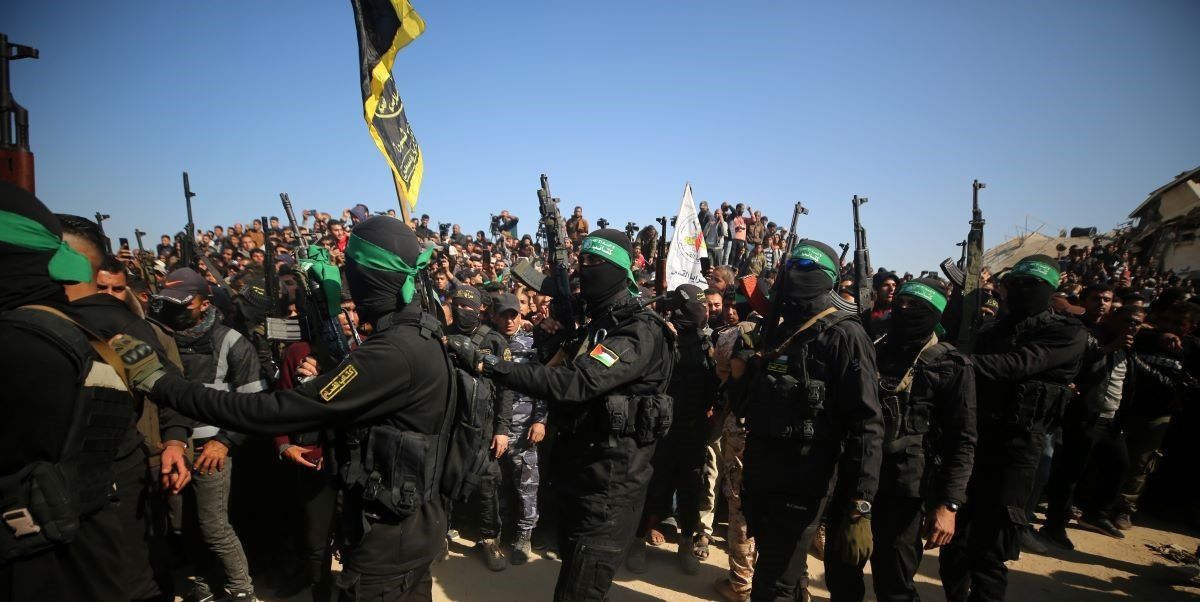Israel hunted Yahya Sinwar — the Hamas leader and mastermind of the Oct. 7 attack — for over a year. He was hidden deep within Gaza’s shadowy tunnel networks. Surrounded by guards and shielded by hostages, he remained untouchable — until he wasn’t. In Rafah last October, Sinwar was killed not in a targeted operation but during a routine skirmish with a patrol unit. It was only after the smoke cleared that Israeli troops even realized they had taken out their No. 1 enemy.
His death marked a turning point for Hamas, and the leadership role fell to his brother, Mohammed Sinwar, the chief planner behind Gaza’s tunnel infrastructure and Hamas’ former head of logistics and manpower. Six months into his leadership, the question looms: Where does the group stand today?
Then: Under Yahya Sinwar, Hamas operated from a position of relative strength, calculating that the time was right for the group to attack Israel, believing that Iran and Hezbollah would follow suit and that the humanitarian crisis that would inevitably follow in Gaza would only benefit Hamas by spurring international backlash against Israel.
Mohammed Sinwar assumed control of the group at a time of growing weakness. The wider regional response his brother had counted on never materialized. Iran is increasingly focused on domestic stability, and Hezbollah is now badly weakened. And while Israel has faced international criticism for its actions in Gaza, it continues to receive robust military support from key allies like the United States.
Now: Eighteen months into Israel’s ground campaign in Gaza, Hamas is militarily diminished, organizationally disjointed, and politically weak. Since the breakdown of a ceasefire in March, Israeli attacks on the enclave have resumed, and the already catastrophic humanitarian crisis has only deepened amid restricted aid deliveries.
“Hamas is less cohesive than it probably has been at any point in the last decade,” says Jonathan Panikoff, director of the Scowcroft Middle East Security Initiativeat the Atlantic Council. “There seem to be major shortages in their military arsenal.” Their only remaining leverage, he notes, is the 59 hostages still believed to be held in Gaza – of whom only around 24 are thought to be alive.
Yahya Sinwar was able to seamlessly coordinate between Hamas’ regional allies, its political arm — the Council of Five based in Doha, Qatar — and its fighters on the ground. However, under the leadership of his brother, that cohesion has broken down. Now, the Council, which would be central to any future ceasefire negotiations, is seen as “too far removed politically,” Panikoff says.
“They're not going to be able to control what happens on the ground in Gaza if there’s a disagreement between those on the ground in the strip and the Council.”
Since Hamas came to power in 2007, the group has maintained its grip by controlling access to jobs, presenting itself as the vanguard against Israeli occupation, and, of course, by having a zero-tolerance policy for dissent.
But in recent weeks, public frustration has begun to boil over. As the humanitarian crisis deepens, protests have erupted inside Gaza — most notably in early April, when hundreds of Palestinians marched through Beit Lahia in the North, demanding that Hamas relinquish control and end the war with Israel.
Still, Panikoff cautions against overstating the momentum behind the movement: “At the end of the day, it’s still Hamas that has the guns and the weapons. Even with protests, it’s hard to imagine the people of Gaza being able to mount a meaningful uprising.”
Inside Hamas, however, cracks may be forming. Panikoff notes that some within the lower ranks are ready for the war to end. “After a year and a half of fighting, weapons and ammunition are running low. Resupply from Iran is going to be harder than before. I have no doubt there are many who would prefer that Mohammed Sinwar cut a deal — release the hostages, bring Palestinian prisoners home, and move on.”
But Sinwar himself isn’t signaling that he is ready to listen to them anytime soon. While mediators from Qatar and Egypt put forward a new plan to end the conflict in Gaza last week, it hinges on Hamas relinquishing its arms and a full Israeli withdrawal from Gaza, something that Panikoff says “will probably never be realistic.”
“We’re stuck in this cycle, and I don’t know how you get out of it.”
